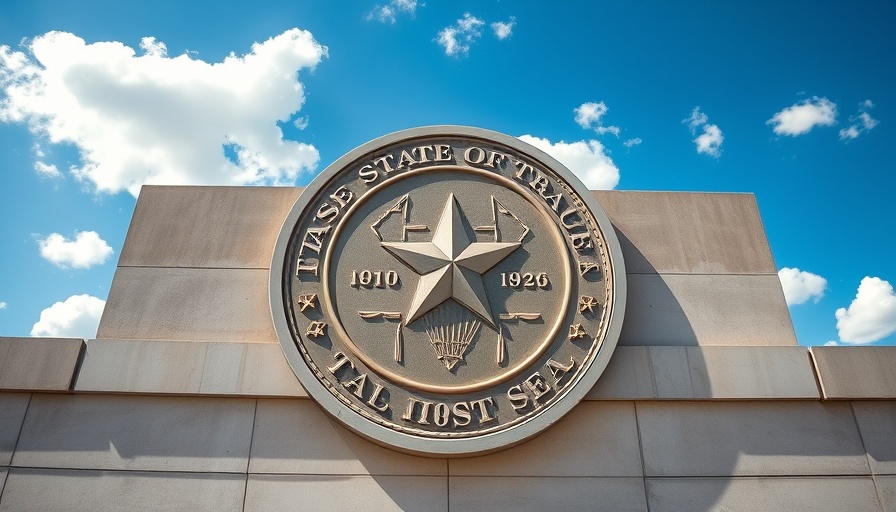
Dallas' Ambitious Dream Turns into a Business Opportunity
The city of Dallas had invested significantly in an office building off I-35E, intending to transform it into a permitting hub aimed at streamlining development services. However, the city’s vision faced hurdles that led to a drastic pivot—Dallas is now putting the more than 200,000-square-foot property up for sale. This move comes on the heels of what some city council members have referred to as an "embarrassment" for Dallas, indicating a sentiment of frustration over the failed attempt.
The Numbers Behind the Decision
A report from the Dallas Business Journal outlines that the city spent tens of millions on acquisitions and repairs for this property. Despite these investments, the anticipated benefits never materialized, leading many to question the planning strategies undertaken by city officials. This financial misstep raises important questions regarding the allocation of city resources and how future projects are approached. Selling the property could free funds and redirect efforts toward more viable projects that better meet the needs of Dallas residents and businesses.
Reimagining City Spaces: Challenges and Opportunities
What’s noteworthy in the wake of this decision is the potential for Dallas to reimagine its approach to urban development. The failed project didn't simply reflect poor planning; it serves as a vital learning opportunity. Historically, cities that faced similar setbacks have used them as springboards for innovative solutions.
For Dallas, engaging with local businesses and stakeholders can lead to a more effective use of governmental resources. Conversations around zoning laws, public-private partnerships, and improved infrastructure can rejuvenate the real estate market and attract new businesses. Moreover, locally owned small businesses in Dallas could greatly benefit from such revitalization efforts.
Current Trends in Dallas Business Development
With the changing landscape, it's important to explore the latest trends in business development throughout Dallas. The city is becoming a hotbed for technology and startups, assisted by strong support from institutions like the University of Texas at Dallas. The UT Dallas Business School has been influential in nurturing future innovators and business leaders, contributing not only to economic growth but also to an engaged community committed to entrepreneurship.
As more top businesses in Dallas emerge, it’s crucial to ensure that initiatives are inclusive and accessible. Ensuring that all Dallas business sectors, from tech startups to traditional local establishments, have a platform for growth will make the city more resilient to future challenges.
What Lies Ahead for Dallas’ Commercial Real Estate?
The current scenario opens the door for discussions about the future of commercial real estate in Dallas. With many unanswered questions about what the city will do next, local business brokers suggest that timing is key. A strategic sale of the building could benefit from market conditions, but this hinges on the city's ability to market the space attractively while addressing the public’s previous concerns about its viability.
Potential buyers might see this as an opportunity to repurpose the space for more lucrative endeavors or community projects that fulfill unmet demands across Dallas.
Conclusion: A Call for Community Engagement
As Dallas transitions out of its permitting hub phase and into a period of reassessment and potential reinvention, the community must take an active role in guiding the direction. Residents, local businesses, and city officials should collaborate to ensure future developments serve the public interest, address current needs effectively, and foster growth across all sectors. With Dallas being a thriving hub for innovation and business activity, the city has the potential to turn lessons learned from this experience into successful outcomes. Now is the time for community voices to be heard in shaping what comes next for their city.
 Add Element
Add Element  Add Row
Add Row 



 Add Row
Add Row  Add
Add 


Write A Comment